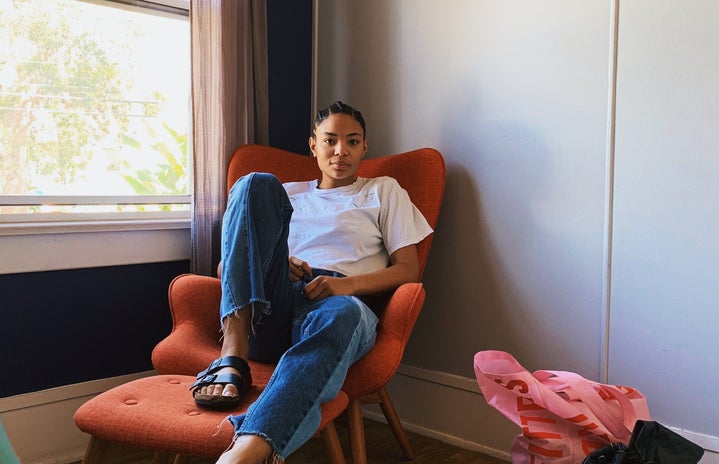Your 20s can be tumultuous: transitioning to college, meeting new friends (sometimes straying from old ones), and starting to discover career aspirations. For many of us, myself included, the excitement can also be coupled with pressure to keep up and hit expected “milestones”.
A simple late-night scroll through the Instagram of a high school friend can bring a tidal wave of negativity. They seem to have it all figured out; maybe they’re coupled up with an attractive, supportive new partner, have just snatched up a fantastic apartment, or are travelling to extraordinary locations around the globe. Though we’re happy for our friends, we can feel down because our lives aren’t moving forward.
For me, these familiar pangs of envy can even turn into self-doubt. I’ve spent most of my 20s in college, which can leave me questioning my love life or career. If this sounds familiar to you, you’re not alone! Read on for tips to navigate that sense of “falling behind” in your 20s.
Tip One – Switching Off
What is the simplest solution to social media FOMO? Get off social media! Thanks to social apps and networks, we’re bombarded with news and updates from a far wider portion of our social circles than ever. They keep us connected, yes, but sometimes at a price. Whereas before, we’d hear of good news from those closest to us, or maybe on occasion bump into an old peer, now that information is in our pockets. Heaven knows sometimes we even look people up (old colleagues, your ex…. your partner’s ex…) to see how they are doing (trust me, it never ends well!)
One golden rule I had to implement was to log myself out of Instagram on my phone; I keep my account, post occasionally, and like a friend’s post or selfie. However, it dawned on me that the app was diminishing my overall happiness instead of contributing to it. Consider logging yourself out of apps on your most-used device. If someone else’s posts are becoming overwhelming, send a warm message of congratulations and then temporarily mute them. Be selective about your feed, and don’t feel guilty if you must prioritize well-being in this digital age.
Tip Two – Document Small Wins
Another thing that can change the game is documenting what is going well, even when it is small. One way to do this is by keeping a gratitude journal, but if you’d like to make this more interesting, I suggest turning it into a visual diary. Try to take one photo each day for a month of something that made you feel good; when you scroll back through, you’ll have curated a mini gallery of joy!
We often measure ourselves based on external judgments or ideas about what is “worthy” of celebration, but focusing on these big things led me to overlook what made me happy day-to-day. The small wins, like booking a bus ticket to go on a fun day out, connecting with a good friend by grabbing a coffee, or even having a peaceful moment on your walk to campus, help ground you and appreciate the moment more.
Tip Three — Find your Focus
The trouble with feeling behind is that often, we compare ourselves to everyone else using multiple areas of life and motivators: We don’t have a significant other, we don’t have our dream internship, and we don’t live in x city…. However, it can help to adjust expectations and realize that, at times, we are comparing ourselves to multiple people—maybe even the hundreds we follow on Instagram.
It can help us adjust our expectations and realize we are just one person! It’s natural to progress in some areas more than others. It’s a cliché, but everyone is on their own path.
When you feel lost, try to recenter your priorities: Where are you currently allocating your energy, and is it an area you truly value? Pick out just one aspect of your life (college, romance, career) and pledge to dedicate your energy to this area for six months.
For example, if you feel jealous of friends’ awesome careers, map out some baby steps to progress in yours in the next few months. Maybe you can dedicate one night a week to hunting out a summer internship, perfecting your cover letter, or scheduling one or two networking events this month. Aim for concrete actions, rather than vague ideas; rather than “improve my C.V.,” try – “On Monday at 4 pm, I’m going to career services for a C.V. consultation.”
One thing that has helped me is to reflect on the fact that when we choose to focus on something in our lives, we are passively choosing not to focus on something else. It might sound sad, but this knowledge can be empowering—it helps to know that my life’s direction is (at least partly) a choice I make, which is OK.
I hope these reflections help you if you have ever felt like you’re doing your 20s wrong. Remember, seeing someone else succeed or be happy does not detract from you also being successful and having a fantastic life! Besides, your 20s are just the beginning!
DISCLAIMER:
While comparing ourselves to others is a common experience, if you find yourself consistently feeling sad, hopeless, or experiencing low mood, please don’t hesitate to reach out for professional guidance and mental health support.
Kids help phone is available 24/7 to Canadians aged 5-29: call 1-800-668-6868. Or Text CONNECT to 686868
University of Victoria students can reach out to Support Connect by phone or online anywhere in the world.
https://www.uvic.ca/student-wellness/wellness-resources/supportconnect/index.php


